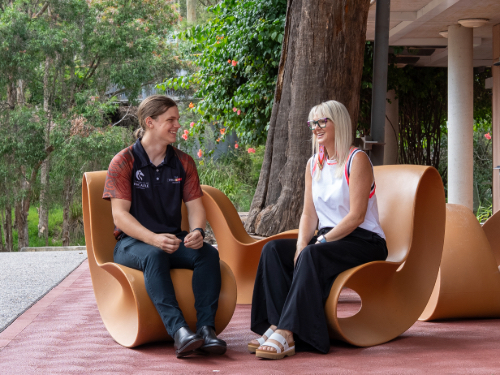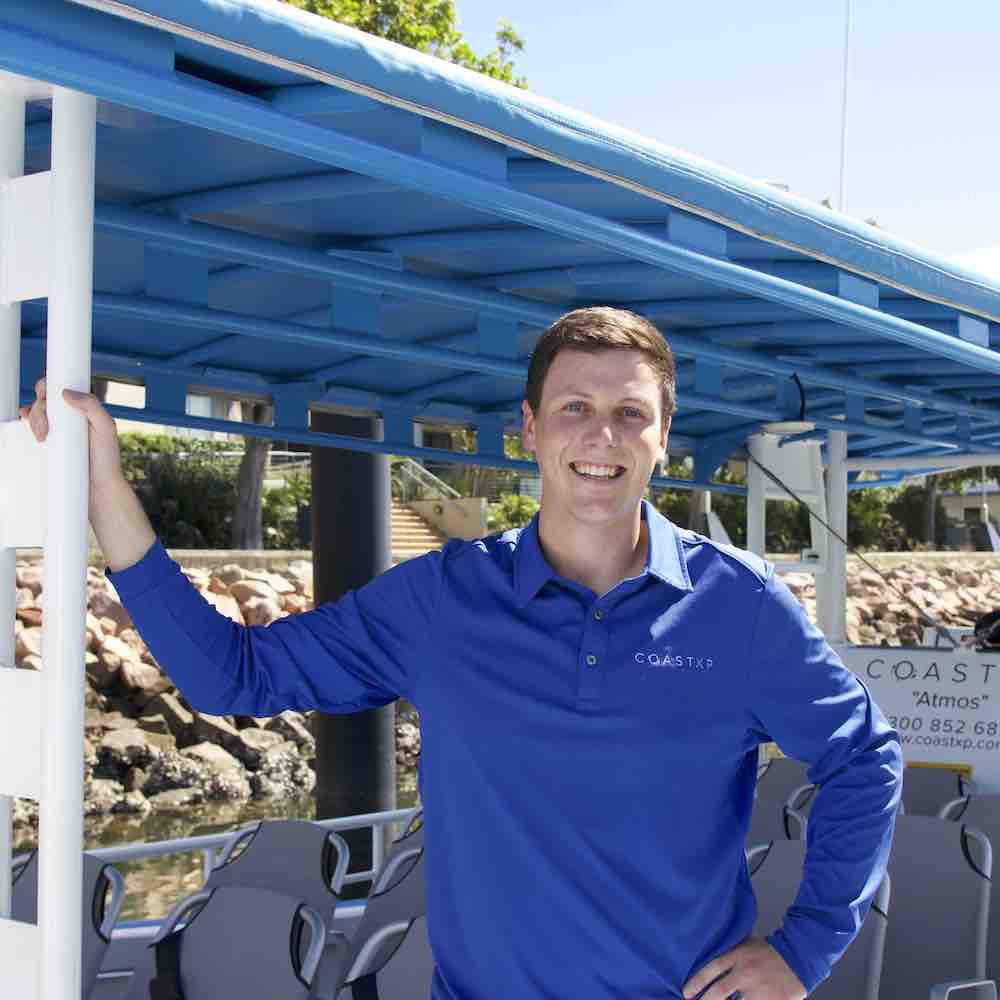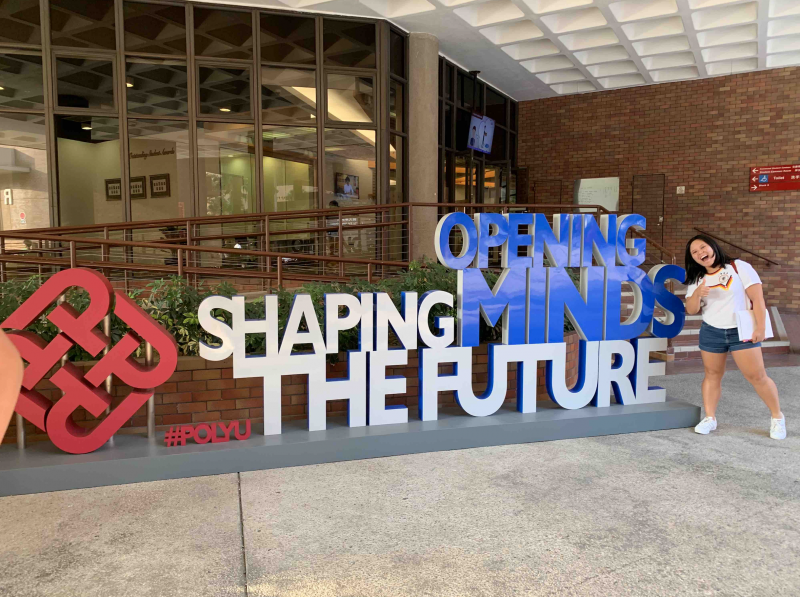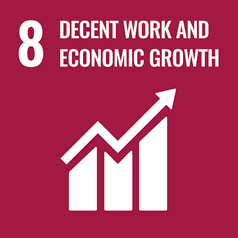A single figure sits down at a computer. With the touch of a mouse the machine rumbles to life. Fingers on a keyboard eagerly type the phrase ‘top jobs in Australia’. The results…?
This image is not an uncommon one. Questions around careers, industries on the rise and making the ‘right choice’ challenge us all. You’re not alone in that.
So, what if there was an answer to that phrase? What are the top jobs? Better yet, where are the top jobs? And how do you get one? Well, we do in fact have some of those answers. And the role the university sector plays in delivering a high-quality labour force is at the forefront of this answer, so we think this one is worth the read.
Okay, you’re about to finish your HSC and graduate Year 12. Maybe you’re in Year 10 and thinking about what subjects will align with the career you want? You might already be in the workforce and thinking about making a change? Or maybe you’re just not sure what direction you want to go?
Forget Triple J’s Hottest 100. The only hottest list of things you need to know is the hottest jobs of the future. The most in-demand jobs set to surge over the next five years in Australia have recently been revealed by the Australian Prime Minister. Based on employer demand around the country, these top-ranking industries are calling out for skilled workers and with connections to industry, practical experience and strong employment outcomes for students, it’s no surprise the University of Newcastle is a breeding ground for graduates in fields listed in the top 10.
But don’t just take our word for it. Here are some of the degrees set to set you up for success. A first-hand look from some of our students and graduates to help answer the questions you probably didn’t know you had, or narrow down the direction you want to go.
From overseas exchanges to hands-on placements, building industry networks and once-in-a-lifetime opportunities, this group of students seems to have it all, and are well on their way to being the in-demand worker we all aspire to be.
1. Construction Management – Emily Spurway
For Emily, the Bachelor of Construction Management was a perfect fit as it offered a blend between courses and topics covering architecture, engineering, business and financial management. Making the decision even easier for her was the variety of career paths on offer once she graduated – everything from project management, surveying, certifying and estimating to contract management and engineering.

Making herself stand out as a potential employee was an important step along the way for Emily. And with the College of Engineering, Science and Environment, she was in good hands.
“Throughout my first year at university, there were an array of opportunities for students to listen to guest lecturers offering first-hand knowledge and we got to meet industry professionals and potential future employers. This started from first semester, first year,” said Emily.
“The best part of studying at the University of Newcastle was the flexibility that the University offers in terms of study options. Through one of the meet the employer sessions in my first year, I was lucky enough to gain full-time employment.
“Taking on a full-time job would not have been achievable if I wasn’t able to switch my studies to online learning. This allowed me to gain hands-on experience while still completing my studies and gave me an important head start in my career in construction,” said Emily.
Now, working as a Finishes Engineer for Lendlease in Sydney, Emily is able to see the value she’s adding to the Australian skyline – currently working on a 56-storey commercial tower.
“What I love about my job is being able to get out of the office and work on site during the day. Seeing everything come to life. I think this is so imperative to learning as you are constantly picking up new details, ideas and concepts. And I love that you never really stop learning new things,” concluded Emily.
Learn more about the degrees in architecture and construction.
2. Civil Engineering – Josiebel Cardona
A tangible impact. That’s what drew Josiebel to her career in Civil Engineering.
“I have always been good at maths and science and have been interested in creating things and the built environment around me. I love my community and enjoy seeing things in it that people enjoy using. I knew a Bachelor of Civil Engineering would be a great way for me do all these things,” said Josiebel.
According to Engineers Australia, there is currently a skills shortage of experienced engineers in Australia. Public infrastructure, a re-emergence of demand for minerals and a global transition to clean energy and adapting to climate change are driving the demand for these engineers which means opportunities are abound.
For Josiebel, working as a Structural Engineer is both challenging and rewarding. Fortunately, her studies meant she developed transferable skills that will serve her well in the future – no matter where her career leads.
“I love my job. There is a wide variety of technical and corporate skills I’ve learnt and continue to learn every day which I know, that in these formative years of my career, are extremely valuable.
“It is really rewarding to walk around my city and point out buildings that I worked on. I take pride in seeing the hard work that I do being enjoyed by the community and being a role model for other girls looking to pursue a career in STEM,” said Josiebel.
What sets Josiebel apart from the rest of the pack? An ability to see the global picture.
“During my degree I got the opportunity to study overseas on international exchange. I did one semester in the UK and another semester in Hong Kong – both at world renowned universities for civil engineering.
“While living and studying overseas I was exposed to other cultures and environments that I was not familiar with, learnt from scholars who had different perspectives than me and grew new relationships with people all over the world. That’s what’s given me such a well-rounded experience,” concluded Josiebel.
See what other degrees you could study in the engineering field.
3. ICT Business and Systems Analysts – Ted Devine

The demand for professionals in data science and surrounding industries continues to increase in Australia. For Ted, after completing his undergraduate in science, he was searching for something more to give him an edge as an employee and find a role he was passionate about – so he’s returned to study the Master of Data Science.
“I knew I wanted to further my studies but didn’t know exactly what until I started looking. I found the Master of Data Science contained many subjects that I already had an interest in and others that I knew would challenge me. Another positive was how the information I would learn throughout this degree would assist me in my future career.
“I feel the high level of content I’m learning allows me to make better-informed decisions, not just with data but within my personal life. These studies allow me to think critically and give me the edge in real-world applications,” said Ted.
Currently working at Sydney Water as a Graduate in the Resilience and Climate Adaption team, Ted loves feeling like he’s actively contributing to the reduction of emissions Australia emits.
“Climate change is a real issue and working for a company that has plans in place to combat the issue is a huge win in my book.
Reflecting on his study journey so far, there are a few things that have made a profound difference during this time.
“What I find cool about studying at Newcastle is that you aren't locked into any degree whether undergrad or postgrad, there are always options to change and move around degrees.
“It is extremely freeing that I have those options moving forward and they allow me to branch out, trying new courses and electives I might not conventionally like just for the experience,” concluded Ted.
Learn about the degrees in this field that will set you up to be an in-demand graduate.
4. Software and Applications Programmers - Akshata Dhuraji
Currently in her final year of a Bachelor of Software Engineering, Akshata is ready to kickstart her career in an industry that’s seen an exponential rise in jobs over the last decade. And she’s got the experience to back it up thanks to her final year project.

“I decided to undertake my final year project with Robot Systems as I wanted to work with a company and get that hands-on practical experience of working in a software team with a client before I step out into the workforce.
“We were tasked with developing a 3D drawing and modelling software similar to CAD that can be used to draft 2D designs and 3D models before being sent to a laser machine to cut through materials. While the project is still in development phase, once completed, the software will be used by Robot Systems and would be sold by them to their vendors,” said Akshata.
Working with the local Newcastle business, Akshata was able to become an extension of their team – collaborating with employees on solving technical issues, participating in planning meetings and providing regular progress reports on where the software was up to.
“The most important learning that I have taken from this course is the aspect of working on a massive client deliverable as a software team and getting through the different challenges.
“These challenges include time constrains, revising scopes, providing the client with documentations, conducting thorough risk assessments, working in an agile development life cycle as a software team and helping each other out,” said Akshata.
With dreams of working in the data engineering and big data analytics space, Akshata knows that she’s set herself up for success.
“This course not only provides incredibly valuable practical experience, but it also prepares all students in undertaking an engineering research thesis thus, setting us up for a postgraduate program if that’s the direction you decide to take,” concluded Akshata.
Explore all of the degrees offered in computing, maths and technology.
Related articles

This uni program is changing the game for mob
From one students’ first time in a classroom to a mum-of-three’s return to learning, these real-life stories show what’s possible when universities open doors and open minds.
Read more

Pathway to purpose
From limited beginnings to limitless dreams - equity in education is giving Arthur Demetriou the chance to change the face of medicine.
Read more

Big dreams built through remote community partnership
The unlikely pairing of outback Menindee and seaside Newcastle have successfully bridged the distance
Read more

Partnering to solve the Pacific plastics plight
Microplastics are notoriously hard to detect but their impact is significant. How deep is the problem in the Pacific Ocean? Scientists from Australia and Samoa teamed up to find out.
Read more

4 ways to stress less during your HSC
Try these expert-backed strategies for keeping stress levels down during HSC year and beyond.
Read more

6 young entrepreneurs making waves
Hear from six young entrepreneurs making waves across tourism, pharmaceuticals, food science, and mental health.
Read more
5. Early Childhood (pre-primary school) Teachers – Melissa Duffy-Fagan
“It’s very simple. I just longed to be a preschool teacher. After a short stint as a legal secretary, I knew that child development and family studies was my true interest, so I began my learning journey in early childhood education and care.”
Melissa’s career in early childhood education and care began 30 years ago. First at TAFE, then with an undergraduate degree, before completing her Masters with the University of Newcastle where she is now completing a PhD.
“I believe that when I began postgraduate studies at the University of Newcastle, my professional career changed trajectory.
“The courses offered in the Master of Early Childhood helped me refocus on the complex issues faced by the sector and I engaged in contemporary study and readings that sharpened my world view and critical thinking skills,” said Melissa.
As an Approved Provider and Director of an Early Childhood Education and Care facility in Lambton for 19 years, Melissa wanted to further understand the impact leadership has upon daily practice and professional identity in early childhood teams. So she embarked on her PhD studies.
“Leadership is directly linked to quality outcomes for children and families yet is one of the most difficult and misunderstood aspects of operational and educational roles in early childhood centres.
“This is particularly poignant now with the huge workforce crisis we are facing as a sector. If leaders and educators recognise themselves as professionals and share their professional experiences, practices will improve, and the status of the sector will benefit.
“I hope my research can assist in advocating for the value and importance of the work of the Early Childhood Education and Care sector beyond economic productivity and quality measures,” concluded Melissa.
Discover the range of education degrees that can lead to this rewarding career.
So, what does the future of the workforce of Australia look like?
And how can you best prepare for a successful career like some of these students and graduates?
Research conducted for the Prime Minister’s in-demand jobs announcement suggested that nine in ten jobs over the next five years would require a post high school qualification such as TAFE or a university degree. This means that upskilling and higher education has never been more important.
As the Pro Vice-Chancellor for Human and Social Futures at the University of Newcastle and a leader in the education industry for more than 35 years, Professor John Fischetti knows the significance the University plays in producing not only work-ready but life-ready graduates.
“From pre-school to postgraduate and beyond, learning is a lifelong journey,” said Professor Fischetti.
“From those very early questions you might ask yourself – ‘what do I want to be when I grow up?’ or ‘what kind of career do I want to have?’ – through to applying for your studies or even submitting a resume for your dream job.
“All these steps are important footprints on your life path that will ultimately set you up for your future. Some people might already know what they want to do, some might still be finding their way. What’s important to know is that at the University of Newcastle there are people to support you in finding those answers and helping make it happen for you.
“As a Top 200 university in the world, we’re incredibly proud that 90 per cent of University of Newcastle undergraduates find full-time employment within four months of graduating. With placement opportunities, connections to industry and real-world experience embedded into all our programs, our goal is to prepare you for a successful job and career beyond your time here,” concluded Professor Fischetti.
The aftermath of the pandemic has meant that the nature of work – what we do and how we do it – has changed. There are skills shortages that need to be filled, new industries that need to be explored and work-life balances that yearn to be met. And people are more empowered than ever to find a career that works for them – no matter what season of their life they’re in.
There are so many things to consider when thinking about a job for the future. One thing that is becoming more common is the fact that the dream is to no longer just have a job but to have a job that works for you.
While it might feel like the Hunger Games out there, with the support of the University of Newcastle there’s not only a place for you here but a job on the other side as well.
May the odds be in your favour.









